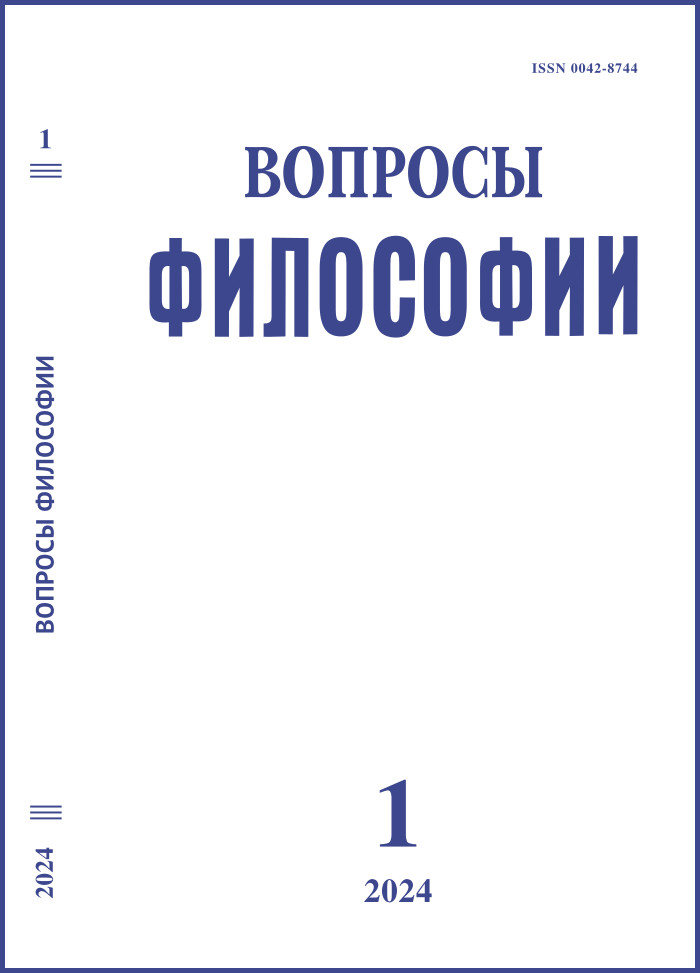The Human as an Open Manifold (Reflection on the Book Man as an Open Integrity)
DOI:
https://doi.org/10.21146/0042-8744-2024-1-58-66Keywords:
anthropology, cognitive science, identity, hybridity, digitalization.Abstract
This is a reflection on a collective monograph (Kiyashchenko, Larisa P., Sidorova, Tatiana A., eds. (2022) Man as an Open Integrity: Monograph, Academizdat, Novosibirsk) presents a unique landscape wide thesaurus with terminological and conceptual networks and their connections, the diversity of authors, and transdisciplinary type approaches to the problem of man. Authors of the book offer not only a solution and “closure” of problems, as a new problematization of man as an open anthropocelicity and inexhaustibility but much more. Man turns out to be a creative, procreative, linguo-creative, even digital subject, involved in an anthropological crisis full of threats to his procreative self-reproduction (both in the biological and social sense), identity in the technosphere, virtual and real world. The authors of this article of reflexion claim that the notion of a deepening anthropological crisis is uncontroversial in light of the fact that each living generation's own hardships seem to be unique, and that the lack of capacity for compassion was characteristic of all historical eras. The meta-analysis reveals that human digitalization in the form of multiple electronic profiles and “traces” is not only a threat to sociality, but also has positive consequences in the form of opportunities to expand human experience within different “digital” lives. Moreover the “hybrid”, multi-faced identity of man has not only negative sides, but also finds a positive assessment in intercultural theory, where the migrant has the advantage of a kind of “stereoscopic” perception due to mastering several cultural and linguistic capacities.

